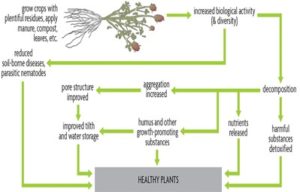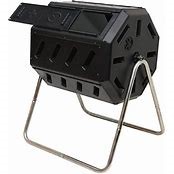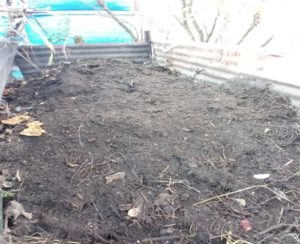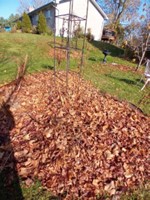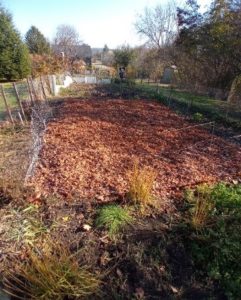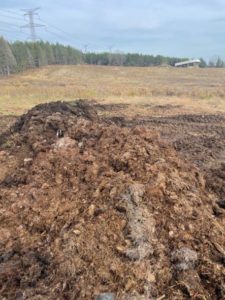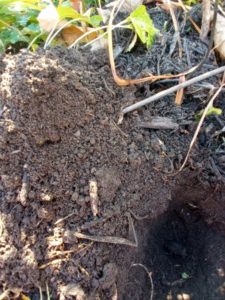Organic material is essential to soil. It provides nutrients for growing plants and is beneficial to earthworms and microorganisms which aid in water and nutrient retention. It also minimizes compaction of the soil by creating pore space.
Composting
Compost is one way to reduce garbage waste and create black gold for your garden. The perfect compost needs the proper amounts of water, oxygen, yard waste and kitchen scraps. The compost needs to be turned frequently to add oxygen or anaerobic bacteria will start to grow and the compost will take on a bad odor.
Sources: thespruce.com/compost
TIPS
– Adding clay to the compost in small amount helps to create micropores in sandy soils for better water retention.
– Adding soil to the compost pile helps to activate bacteria to speed up the rotting process. It also helps to neutralize smelly anaerobic gases if placed on top
– Cutting organic material into smaller pieces helps them to decompose faster Sources: helpmecompost.com
Leaves -Why keep them?
Leaves are nature’s natural compost. They are part of the rich humus that covers the forest floor.
Shredded leaves, which decompose faster, added to gardens in the fall helps to protect tender perennials from the cold while adding organic material to the garden as it decomposes. Leaves act as mulch in the spring to aid in water retention, to suppress weeds, buffer soil temperature and reduce soil erosion.
- Sources: motherearthnews.com
Leaves can be made into leaf mold if left for a couple of years. They can either be left in a pile or put into a wire cage. The leaf mold will have a high fibrous content which will aid in water retention.
TIPS
– Shredding leaves before using them aids in decomposing
– Cut up leaves left on the grass adds nutrients and organic material to the lawn and feeds the worms
– Adding leaves to compost adds organic material
– When making leaf mold, add grass clippings to add nitrogen
– Work shredded leaves into your vegetable garden to add organic material
– Remove the leaves from around emerging plants in the spring
Manure- 4 benefits
1- Adds nitrogen, phosporous and potassium to soil
2- Fights diseases in soil and on plants
3- Readily available from farmers
4- Easy to apply
TIPS
– Make sure it is well composted to eliminate pathogens and weed seeds
– Break up the clumps when applying
– Add in the spring to avoid nitrogen leaching out
sources: accessiblegardens.com
Authored by Christine Westbrook

